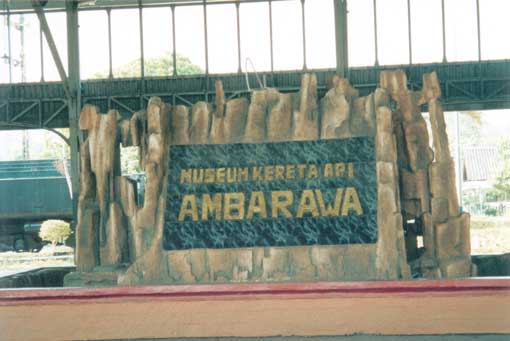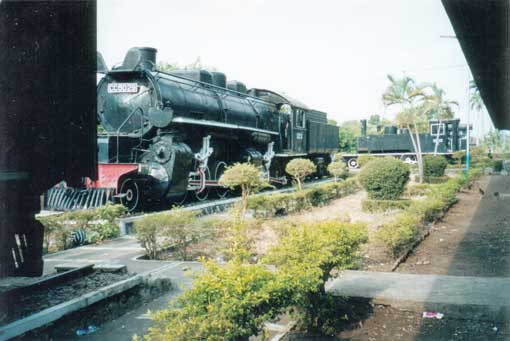Donata Deska?
Everyone above 15 years old came on the list for the duty as night-watcher. I was on duty every fortnight between two and four o'clock at night, that was a horrible time so right in the middle of the night.
There were always two of us walking together during the night, each couple of night-watchers had their own territory to take care of. We were responsible for the smuggling near the wall but we usually did the opposite, we warned the smuggles that some of the Japanese soldiers was coming.
When a Japanese soldier would pass at night he then asked us; “Donata deska?”
We had to bow deep and answer; “Fu simban itju ari masin”. He would ask us in a bit of English and a bit of Malay (today Bahasa Indonesia) if we had seen any smugglers. We answered “No” we hadn't seen anybody at all. When the Japanese soldier left us we had to bow again and say; “Su swi teh fuku musi mah”.
We had to learn these Japanese words but I still have no idea what they really mean. Maybe something like” I am the night-watcher and everything is okay.” Who knows. I wrote those Japanese words down during the war, just in case I might forget them and that would have been a sin, indeed enough to be slapped in the face.
But most of the times there was no Japanese control at all, we only saw many women and children running for the toilets at night since so many of us had diarrhoea. It was also quite cold at night especially in our worn-out clothes, there was nothing to warm us up either, no tea or coffee. It was also quite dark, there were no lights on, just in case “the enemy” tried to fly over and see that there were internee camps and our prison in Banyu Biru.
For me there was always a ray of hope when we went walking to Ambarawa with my working group. Of course it was a long walk barefoot right over the hot asphalt road, but still when we arrived at the station in Ambarawa we came into another world. A world that I had known so well, you could smell the food being cooked nearby the station. Amazing how normal life seemed to go on outside my dirty prison. Each time I asked myself: ”Are these trains going to Malang? Will the Indonesian engine-drivers tell the people in Malang that they have seen those poor dressed, hungry and dirty looking Dutch at the Ambarawa station?
I loved the sight and smell of the locomotives, they still looked so proud, so impressive. People went and came by train, some of them looked at us in big surprise. We must have made a very poor impression on the Indonesians.
But nevertheless it was like a coming home for all of us in my group. On top of that, we each received a small piece of not risen bread, one had to chew it well, just like chewing gum. I kept half of the piece for my mother, she was always so hungry and so very skinny.
When we had loaded our barang-barang (goods) on the military cavalry cart we had to walk back “home” again. That was always much heavier then the journey out, we also felt sad when we had to walk all the way back. How wonderful it would have been if we could get on one of those trains and go home to the places where we used to live before the war.
It was so very beautiful outside our prison, it all looked so familiar, so comforting, just as if the prison was only a bad dream. I sometimes started humming a tune, but very softly of course, we were not supposed to hum or even less to sing, that was strictly forbidden.
And so we went through the gate again, started unloading our goods and then at last we could fetch our “starch soup with its tiny pieces of cabbage”, put our burning feet in cold water, and fall asleep.
Walking to Ambarawa were the few better days during my forced stay at Banyu Biru.
Today the Ambarawa station is a museum.


Ambarawa station-musem, picture taken by my sister
Ambarawa station, this picture was taken by my youngest sister


